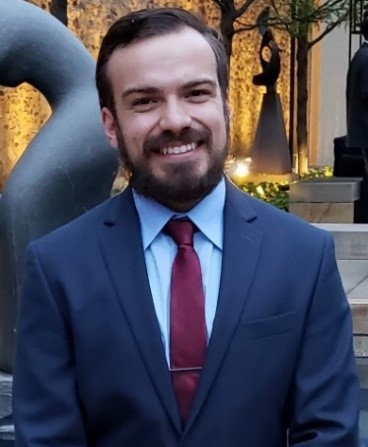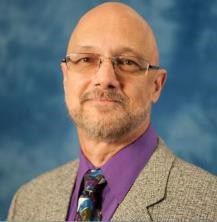Excessive and growing orbital debris has the potential to damage our on-orbit satellites and platforms, and will impact future missions. Join the team to assess options to mitigate that critical problem.
Abstract:
Orbital debris is a problem exacerbated by time. Over the past several decades, defunct satellites, spent upper stages, and collisions have created a dangerous orbital debris problem that threatens current and future satellite constellations. In recent times, informal agreements have been made to deorbit or move satellites to graveyard orbits to prevent further debris generation, but there are no set worldwide policies on the matter. Debris can measure from millimeters to several meters, making proposed cleanup efforts difficult and expensive. While Low Earth Orbit (LEO) debris may be temporary, Medium (MEO), Geostationary (GEO), and Highly Elliptical (HEO) orbits are stable for thousands of years. Nets, harpoons, electromagnetic tethers, and even large scale collectors have been proposed with some of these technologies having been tested in space. Spacecraft with greater autonomous and robotic capabilities such as the Mission Robotic Vehicle (MRV) offer an ability to interact directly with other spacecraft. With this ability, it remains unclear how this can provide efficient capture and removal. The challenge for this year’s team is to identify the classes of medium and large-scale orbital debris, select a class to mitigate, and develop an innovative, efficient capture and removal method.
Impact:
The impact of this project has the potential to solve a longstanding issue for the utilization of near Earth space, opening new opportunities for business.
See complete details
Mechanical Design (2-3 students)
Specific Skills: Tool development for extreme environments (launch conditions, low and zero gravity environments, high radiation, etc.). Mechanical Design. Fast Prototyping.
Likely Majors: MECHENG, ROB, SPACE, Engineering Physics
Advanced Robotics (2 Students)
Specific Skills: Dexterous tool development.
Likely Majors: MECHENG, ROB
Vision System (2-3 Students)
Specific Skills: Machine Vision for Object Identification
Likely Majors: CS, ROB
Systems Engineering (1 Student)
Specific Skills: Efficient development of integrated system. Validation methods, error avoidance. With a background/competence in one of the other roles.
Likely Majors: Systems, Any
Sponsor Mentor

Dr. Anthony J. DeCicco
Sr. Systems Engineer
Dr. Anthony DeCicco works on transformative space technology programs within the Northrop Grumman Corporation (NGC). Anthony joined NGC after receiving his Ph.D. in Aerospace Engineering from the University of Maryland under the NASA Space Technology Research Fellowship. Anthony has experience in research-driven work environments working at MIT-Lincoln Labs and NASA on programs in additive manufacturing, composites, material survivability, and advanced propulsion technologies. At NGC, he is a Senior Systems Engineer who is developing the next generation of satellite servicing capabilities to enable spacecraft sustainability. Anthony received his Bachelor’s and Master’s degrees in Mechanical Engineering in 2014 from Worcester Polytechnic Institute and his Ph.D. in Aerospace Engineering in 2018 from the University of Maryland.
Anthony has mentored multiple MDP teams in the past.
Executive Mentor

Andy Kwas
NG Fellow/Engineering Systems Architect
Andrew Kwas graduated from the University of Michigan in 1980 with a Master’s degree in Aerospace Engineering. He has 42 years with TRW/NGC working in advanced projects specializing in on orbit space products, astrophysics projects and weapon system developments. In Mr. Kwas’ role as a NG Fellow specializing in space and advanced manufacturing supports NASA, AFRL, NRO, DARPA, SMDC, ORSO and the Navy in high tech programs. Mr. Kwas is on the Technical Advisory Board for Cornell, U Michigan, Virginia Tech, Georgia Tech and U New Mexico. He is considered one of the prominent additive manufacturing (AM) experts in the country and has produced numerous papers in AM, advanced satellite technology, unique logistics solutions, and miniaturization of components. Mr. Kwas is an appointed Research Scholar at the University of New Mexico.
This is Andrew’s sixth MDP project.
Faculty Mentor

Nilton Renno
Nilton Renno is a Professor in the Climate and Space Sciences and Engineering department. His research interests include, aerosols and climate, astrobiology, instrument development, planetary science, systems engineering, and thermodynamics.
Course Substitutions: Honors, ChE Elective, CS MDE/Capstone, CE MDE, EE MDE, IOE Grad Cognate, MECHENG 490, MECHENG 590, ROB 590, SI Elective, SI Grad Cognate
Citizenship Requirements: Student team members must have authorization to work in the United States without restriction in ITAR location.
IP/NDA: Student team members will sign NDA documents that are unique to Northrop Grumman.
In Person/Remote Participation Options: Meetings and work will take place on campus as University policies allow.
Internship/Summer Opportunity: Depending on the Covid situation, internships may be available.
